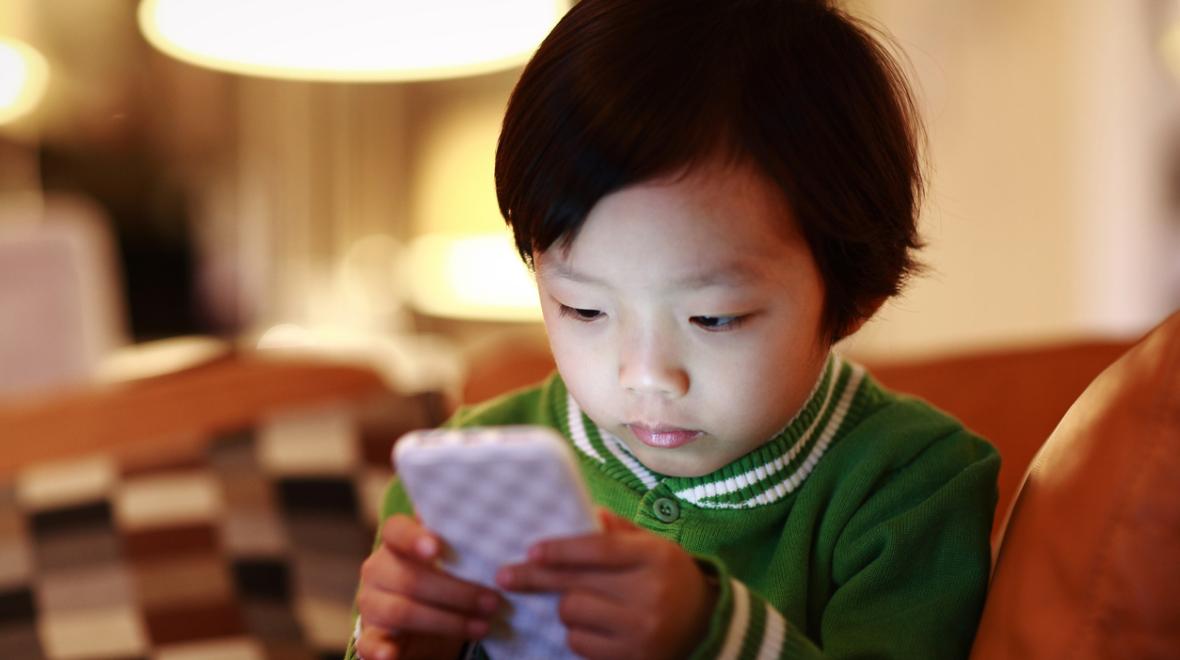
Photo:
The U.S. surgeon general called for tobacco-style warning labels for social media platforms in an op-ed published in the New York Times on June 17, 2024, citing studies that link youth mental health concerns and excessive screen time. Photo: iStock
When my firstborn child entered the world more than 15 years ago, I was captivated by everything he did. I fawned over his burbling coos and milk-drunk smiles, and delighted when he finally found the strength to sit up, despite his oversize head. I wanted to capture — and, most importantly, share — every single moment. With friends and family living far away, it wasn’t easy.
About six months after he was born, a longtime friend mentioned a hot new website that could help: Facebook. So, along with my Gen X cohort, I entered the world of social media without much thought and got down to posting my son’s precious moments.
Fifteen years and three kids later, I’m mulling over issues surrounding my kids’ privacy in an age when social media is ubiquitous and my kids speak TikTok and Snapchat fluently, despite not having a presence on either. As a family, we’ve prioritized online safety and privacy while simultaneously watching our kids’ abilities to live private lives at home, with friends and at school slowly erode year after year. It feels nearly impossible to shield them from having their lives broadcast over the internet. Meanwhile, I’m working overtime to help them responsibly navigate this new world — where living publicly is now the norm.
So, when I had the chance to sit down with Devorah Heitner, Ph.D., author of “Growing Up in Public: Coming of Age in a Digital World,” I was eager to get her perspective on the topic.
|
For more support and resources surrounding the youth mental health crisis, screen time and social media, and the importance of play, visit ParentMap’s Antidote for the Anxious Generation page. |
Based on research, how has the way kids and parents thought about privacy changed over the past decade? What new challenges are we facing now?
First of all, the algorithms have gotten a lot better at getting all of our information. Plus, we’re getting accustomed to giving up our data for the convenience of having things selected for us. I do it, too, although I like to think I’m so self-aware. I’m sure there are ways I’ve compromised my privacy by sharing data that helps Spotify or Amazon know what I like. Certainly, social media, like TikTok, knows what you like; that’s what keeps you there. Apps like these are designed to influence our behavior and responses, and the companies know a lot about us.
I think parents and kids are more used to giving out their data than we were 10 years ago. We’re less skeptical. It feels sort of basic to us. Plus, the anxiety of the last few years — with the pandemic and other things — has also made us feel like there’s this trade-off with safety versus sharing our personal data. Certainly, AI and facial recognition have changed the game in the past decade, too.
What are the biggest misconceptions parents have about monitoring their kids online, and how can they adjust their thinking to avoid them?
A huge misconception is that you really can monitor your kids comprehensively and effectively online and know everything about what they are up to as a way to keep them safe. The more we let ourselves believe that, the more we might feel like we can opt out of some really crucial conversations.
Tracking kids can increase anxiety. Also, when kids feel over-surveilled, it can drive them underground. The last thing a parent wants is for their kid to feel like they have to hide from them, because if there is a problem, you want the lines of communication to be open.

Tracking grades and checking them too frequently can also make kids feel over-surveilled and can add stress and pressure to the relationship — especially if parents text kids while they’re at school or pounce on them when they walk in the door. If grading apps are causing anxiety, try to put them on a less frequently checked device or put the password away in a drawer to reduce too frequent checking.
In the book, you write about exceptions to tracking kids online. When is it important to monitor kids’ online social presence?
When they’re new users, you may want to look at their communication together. For example, if you just got your middle schooler a phone, look at some of their texts together or ask them to show you examples of social media posts that are positive or not so positive, so you get a sense of their judgment and where they might need support.

Another situation that likely calls for more support and potential monitoring is if a kid is in crisis: being bullied, dealing with a serious diagnosis, coming home from an inpatient mental health stay or similar situations. Those are times that would probably need a more guided and supported reentry. I would suggest working with their therapist to figure out if temporarily monitoring or limiting access to social media makes sense — while they’re getting their feet under them — to ensure they can use it safely.
For parents of young children, what’s the best starting point for preserving and respecting their child’s privacy online? What should they consider?
From the very beginning, as you’re posting about your baby — or even about your pregnancy or adoption process — it’s important to think about who can see the posts and what information you’re sharing. Even something as simple as posting about a birthday has possible security risks — for example, the potential for identity theft.

As parents, we need to balance our joy in sharing and the number of people who are excited to see pictures and videos of our children with that child’s future as a human being, one who will have thoughts and feelings about the way their information was shared, and the way other people have been able to see and hear stories about them. It’s about balancing the present, when the child feels like an extension of us, with the future, when they’re going to have their own sense of how they want to be seen in the world.
As children get older, we may be tempted to share past posts with them: “Oh, I posted this cute video of you and you got a lot of likes.” Parents should think about what that communicates to their kids and should definitely respect when kids start to resist having their picture taken. It’s important for parents to listen and let kids know that they can always opt out of being photographed or having things shared online, which may be really hard. But we have to remember our parents only took pictures of us a couple of times a year; our kids are much more documented than we were. Plus, even if your kid says no some of the time, you’re probably not going to get them all the way to adulthood with no images. You’re going to be okay.
So, many of the teens and tweens you spoke to for the book are figuring out ways to navigate their online life in a positive, healthy way. What can we learn from them?
That’s such a great question because kids are so thoughtful about who can see what they post, relative to adults. Conversations about sharing college admission results is a great example of the way kids are actually miles ahead in their thinking. One student shared, “If my friend applied early at the same place that I did, I’m not going to share the news that I got in or didn’t get in. I’m going to call them and we’re going to talk one on one before I share that publicly, so that we can process it together.”
In another example, kids were sharing college-rejection TikToks; they were also going out and meeting one another, celebrating their rejections together and supporting each other through the process. Adults tend to post about their news in a way that tries to be empathetic to other people’s feelings but can appear less sensitive, because sometimes it is hard to remember everyone who follows our posts.

Additionally, some teens are consciously curating their social media feeds in places like Instagram or TikTok to support ideas such as body positivity and pride in racial or ethnic identities. In these instances, kids recognize their own identities and find affirming spaces online, making sure their feed supports, affirms and reinforces their identity in a positive way. I think adults can learn from that. Sometimes we don’t realize there’s something toxic in the algorithm; we might be less savvy about it.
That’s not to say kids don’t need mentorship on this front, because they do. Many kids are not curating their feeds in this way and can use support. However, I did speak with a number of kids — especially teenagers ages 15 and older — who are very savvy about this.
If there’s one thing you want parents to take away from reading “Growing Up in Public,” what is it?
I hope we can consider how surveilling our kids can contribute to the challenges of growing up in the digital age and interrupt their crucial process of figuring out who they are. It’s hard enough for kids to figure out their identities and discover who they are when they’re shared and compared with peers. As parents, we want to avoid contributing to the problem by micromanaging them — by checking their grades all the time; by tracking their location; by sharing so much about them that we don’t give them a chance to figure out their own narrative.
Ultimately, kids are making the world so much better with the ways they share and break down boundaries surrounding what used to be taboo to share about ourselves. I think that’s such a huge piece of young adult and teen culture that adults can really learn from and support right now.
More resources for online families: |
Editor’s note: This article was originally published in August 2023 and was updated on June 27, 2024 by senior editor with recent data and information about the surgeon general’s call for social media warning labels, along with additional resources and new images.











